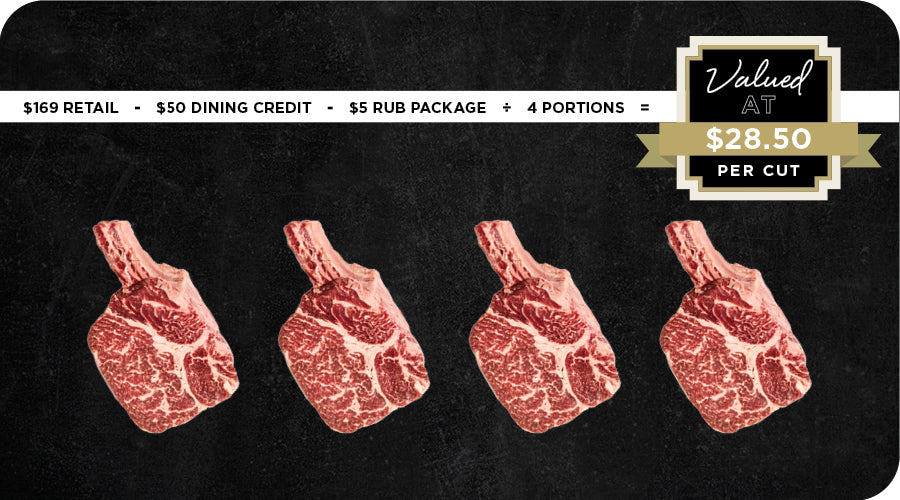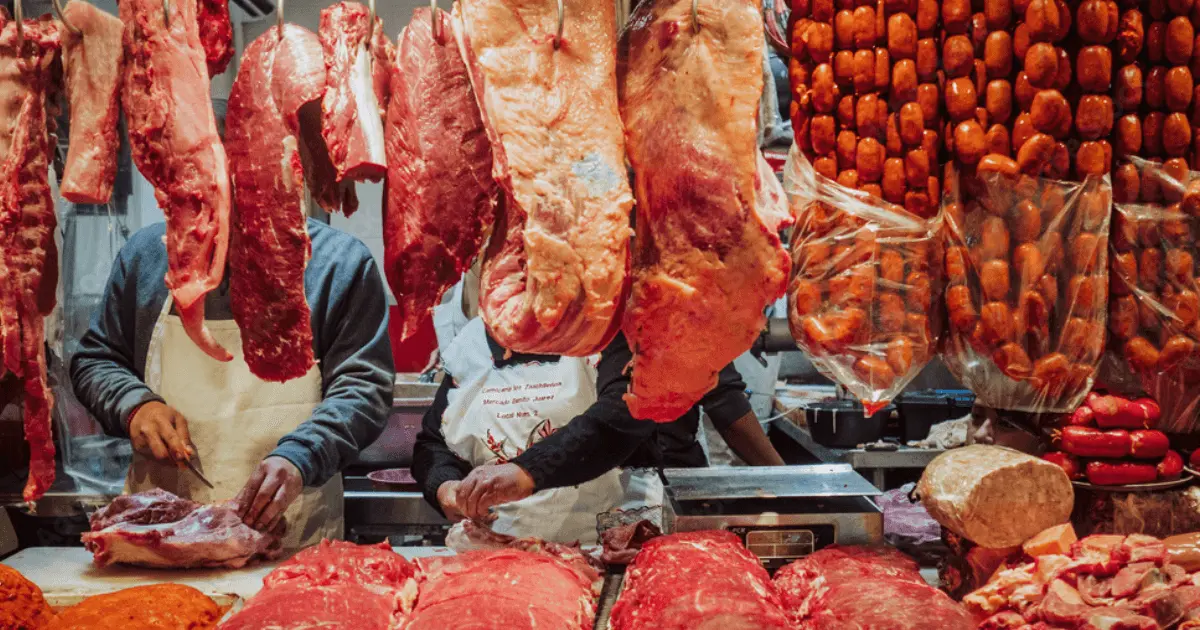Taste the Difference with Premium Meats from Bagley Meat Market Edwardsville IL
Taste the Difference with Premium Meats from Bagley Meat Market Edwardsville IL
Blog Article
Why Choosing a Meat Market Over a Grocery Store Makes a Difference in Preference and Quality
The distinction between acquiring meat from a specific market versus a grocery store often exists in the nuanced layers of taste and high quality. Meat markets normally emphasize quality, sourcing their items from neighborhood ranches, which not just boosts taste but also cultivates lasting methods. bagley meat market edwardsville il.

Freshness of Products
Prioritizing freshness is a significant advantage of choosing a meat market over a grocery store. Meat markets generally provide products that are sourced in your area and refined with an emphasis on preserving ideal quality. Unlike supermarkets, where meat may be saved for extensive periods, meat markets usually obtain day-to-day distributions, making certain that their inventory is continually replenished with premium cuts.
Moreover, meat markets usually have a much more effective supply chain, lessening the moment from ranch to table. This rapid turnover not just improves the flavor and appearance of the meat yet also gives consumers with assurance concerning the top quality of the products they purchase. The skilled butchers at meat markets can additionally provide important understandings right into the quality of their offerings, as they are intimately acquainted with their suppliers and the conditions under which the meat is managed.
On top of that, meat markets typically prioritize whole cuts and specialized products that may not be offered in supermarkets, enabling customers to check out a variety of alternatives that are fresher and a lot more tasty. This dedication to quality inevitably adds to a premium cooking experience, making meat markets an eye-catching option for discerning customers.
Sourcing and Sustainability
The dedication to top quality at meat markets extends past quality to incorporate sourcing and sustainability techniques. Unlike big supermarkets, which often rely upon mass-produced items, meat markets prioritize honest and regional sourcing. This method not just sustains regional farmers and breeders but likewise lowers the carbon impact related to transporting meat over lengthy ranges.

Furthermore, meat markets usually provide a range of cuts and specialty meats that show the seasons and regional cooking practices. This dedication to sustainability fosters a link in between consumers and their food resources, promoting openness regarding the beginnings of the meat they purchase. By picking meat markets, customers can enjoy not only improved flavors but also the complete satisfaction of sustaining responsible and sustainable agricultural practices.
Expert Knowledge and Guidance
While buying at a meat market, consumers benefit from the expert knowledge and customized suggestions offered by knowledgeable butchers. These specialists are generally well-trained and have comprehensive experience in the meat market, enabling them to give understandings that go far past the fundamentals discovered in a grocery store. They can guide customers on picking the ideal cuts for particular recipes or celebrations, making certain optimum flavor and tenderness.

Furthermore, butchers often take the time to engage with customers, answering concerns and sharing pointers that are not readily offered in a read review supermarket setting. This level of personalized solution promotes a much deeper connection between clients and their food, ultimately elevating the general culinary experience. By selecting a meat market, consumers access to a wide range of expertise that can significantly impact their food preparation and pleasure of meat.
Taste Profiles and Range
When exploring the offerings at a meat market, customers are commonly compensated with a varied range of taste accounts and cuts that are generally inaccessible in supermarkets. Unlike mass-produced meat products, which commonly focus on uniformity, meat markets curate their choices based upon quality and regional specificity. This leads to a selection of meats that reflect unique preferences, appearances, and preparation approaches.

Seasonal and locally sourced alternatives further enhance the experience, as these items commonly have remarkable freshness and flavor. The educated butchers at meat markets can direct consumers on the most effective cuts for particular recipes, making certain that each option lines up with wanted taste profiles and cooking techniques. Generally, the variety and quality located in meat markets not only raise the culinary experience however likewise encourage exploration and trial and error in home food preparation.
Sustaining Local Economic Situations
Picking a meat market not just improves culinary experiences with varied taste accounts yet also plays a considerable role in supporting regional economic climates (bagley meat market edwardsville il). They are much more most likely to engage with companies that resource their items from regional farms and producers when consumers choose for meat markets over larger grocery store chains. This practice promotes a sustainable agricultural setting, motivating farmers to keep conventional methods that produce top quality meats
Additionally, meat markets normally utilize regional team, which adds to task development and retention within the neighborhood. The economic impact extends beyond the immediate organization; cash invested at local establishments has a tendency to flow within the area, profiting various that site fields such as retail, advertising and marketing, and transportation. This local financial investment helps improve the overall economic wellness of the area.
Furthermore, meat markets commonly emphasize transparency and ethical sourcing practices, which resonate with customers significantly concerned concerning the beginnings of their food. By selecting to purchase from these facilities, consumers not only take pleasure in exceptional products yet likewise verify their commitment to supporting their community's economy. Essentially, selecting a meat market is an intentional selection that nurtures both individual fulfillment and broader financial vitality.
Conclusion
Selecting a meat market over a grocery store substantially influences taste and top quality. The emphasis on freshness, lasting sourcing, and specialist knowledge adds to premium culinary experiences. Accessibility to special cuts and varied taste profiles enhances meal preparation and satisfaction. In addition, supporting regional economic climates promotes area connections and advertises sustainable agricultural practices. Generally, the advantages of picking a meat market extend beyond specific choices, affecting wider environmental and economic variables while raising the art of cooking.
Unlike grocery stores, where meat may be kept for extensive periods, meat markets commonly obtain everyday distributions, ensuring that their supply is consistently renewed with high-quality cuts.
The proficient butchers at meat markets can additionally provide useful insights into the freshness of their offerings, as they are intimately acquainted with their suppliers and the conditions under which the meat is managed.
Additionally, meat markets frequently use a range of cuts and specialty meats that reflect the seasons and neighborhood culinary traditions. By choosing a meat market, consumers obtain accessibility to a riches of knowledge that can dramatically impact their cooking and enjoyment of meat.
Unlike mass-produced meat products, which typically prioritize harmony, meat markets curate their options based on high quality and regional uniqueness.
Report this page